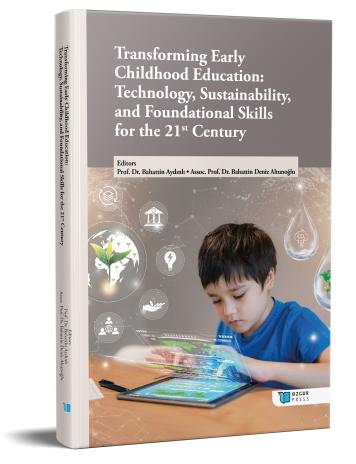
Development of 21st Century Skills in the Preschool Period
Chapter from the book:
Aydınlı,
B.
&
Altunoğlu,
B.
D.
(eds.)
2024.
Transforming Early Childhood Education: Technology, Sustainability, and Foundational Skills for the 21st Century .
Synopsis
Today, the importance given to preschool education is increasing, and many studies support that acquiring knowledge and skills at an early age positively affects children's academic success in later stages. It is known that the foundations of many skills are laid during the preschool period, which plays a significant role in children's cognitive development. Skills such as scientific thinking, establishing cause-effect relationships, and problem-solving begin to be instilled at this stage. Research has shown that children are ready to acquire these skills in the early years of their lives and start school with a broad knowledge base (Clements & Sarama, 2011). The concepts and knowledge gained through preschool education are comprehensive and form the foundation of their future academic achievements (Ginsburg, 2006). Furthermore, rapid technological and social changes require individuals to continually renew themselves. The importance of acquiring competencies defined as 21st-century skills—such as collaboration, critical thinking, problem-solving, and digital literacy—at an early age is increasingly emphasized (OECD, 2018). In this context, supporting children's social, emotional, and cognitive development is seen as critical for them to grow into well-rounded individuals. Instilling these skills early not only increases the likelihood of success in social and professional life but also emphasizes the importance of laying the foundation for 21st-century skills during the preschool period (Robinson, 2015). While preschool education plays a critical role in preparing individuals for society, it is important to adopt student-centered and creative approaches as well as traditional methods in education.

